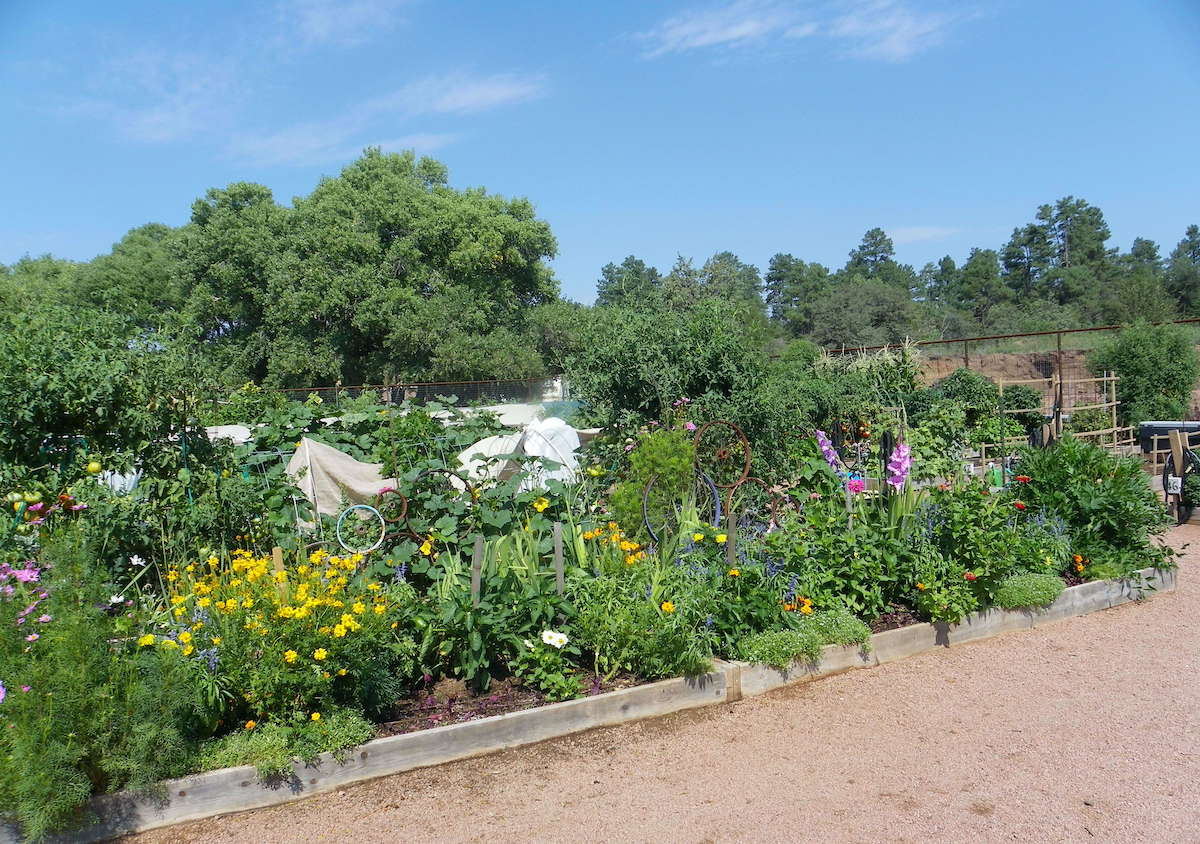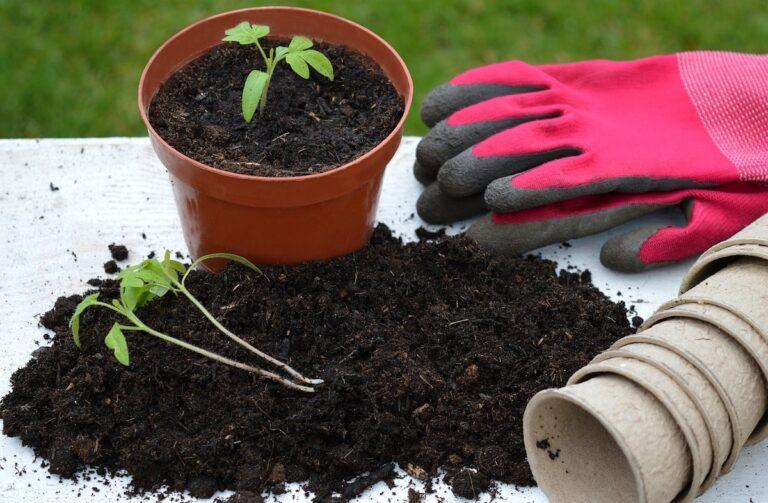RIM COUNTRY is great for gardening! But, it isn’t just like gardening in other places. So, whether you’re new to gardening HERE or are a beginner gardener, here are a few tips:
Prepare for critters. We don’t have as many deer as many other places. We do have elk, as in able-to-jump-a-5-foot-fence-in-a-single-bound – from a standstill! You’re either going to need a TALL sturdy fence, enclosed porch, or an above-the-first-floor porch/deck. Warning: elk can climb stairs. We also have javelina. They don’t jump, but they do dig. Again, you’ll need a sturdy fence, and you’ll need to be on alert for holes under your fencing. Javelina are also much thinner than they look! Make sure any clearance between gates or gate and fence/wall is no more than four inches wide. Of course, we have rabbits. Such cute little critters, until they raze your radishes or your prize roses to the ground. Add a 4-foot layer of chickenwire to your fence. Bend the chickenwire in half, placing 2 feet along the bottom of your fence, and 2 feet along the ground facing out from the fence. Rabbits are smart enough to dig under fences, but apparently not smart enough to back up and dig under (lucky for us). Rabbits are skinnier than javelina; no clearance between gates and fences would be best.
Location, location, location! Most vegetables need 6 to 8 hours of sunlight a day. A few vegetables and many ornamental plants can get by on less. Survey your site and choose plants that match your site’s sun exposure.
Water. You’ll want a water source near your plants, the closer the better. May and June are our two driest months. Be prepared to lavish lots of attention on your new, little plants to make sure they’re well-watered. A layer of mulch around the plants will help conserve moisture. Of course, planting native or drought-tolerant plants will decrease your water needs.
Growing season. Growing seasons are shorter at our altitude, especially spring. If you plant before the summer heat kicks in, you might be able to grow and harvest beets, broccoli, Brussels sprouts, cabbage, carrots, cauliflower, lettuce, parsnips, peas, radishes, spinach and Swiss chard. Once it’s hot, those cool-weather plants will want to “bolt” – flower and go to seed.
Our average last frost date is usually around May 15. Mid-May is a good time to start putting in warm-season vegetables like tomatoes, tomatillos, eggplant, peppers, squash, melons, corn, cucumbers and beans. You can plant seeds sooner if the ground temperatures have warmed up, or plant “starts” if you have a way to protect the young plants from a sudden drop in temperature. Frost cloth or walls-of-water will help conserve heat.
For your best chance of success, wait until August to plant cool-season crops (beets, broccoli, Brussels sprouts, cabbage, cauliflower, celery, more lettuce and radishes, garlic, onions, parsley, parsnips, peas, potatoes, spinach, turnips and rutabagas, winter wheat) for a fall and winter harvest. The garlic, onions and wheat won’t be ready to harvest until the next summer.
In general, the plant varieties with the shortest days-to-maturity, that are both heat and cold and drought tolerant, will perform the best.
Soil. Unless you are fortunate enough to be gardening where someone else has gardened before, chances are your soil is less than optimal. Ideally, what you want is an equal mix of clay, sand and silt. Most of the soil in this area is largely decomposed granite. Adding lots of organic material, preferably compost, will be a must. Our soils also tend to be naturally alkaline; adding soil sulphur may be beneficial. Learning to successfully make your own compost will serve you well in the future.
The High Country Garden Club meets at 5:30PM the first Thursday of every month at Mount St. Cross Lutheran Church, 601 E Hwy. 260 in Payson, AZ in the “log building.” We welcome everyone interested in gardening of all kinds. Come with questions. Share your expertise. Hope to see you there!




